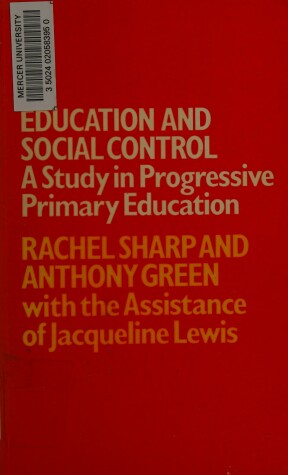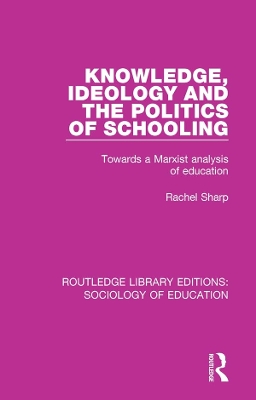Routledge Library Editions: Sociology of Education
2 primary works
Book 49
First published in 1975, this book offers a critique of some of the 'new perspectives' in the sociology of education. This is achieved through a case study of a progressive child centred school.
The book suggests that a liberal approach to education fails to appreciate how thoroughly a complex, stratified industrial society penetrates the school. It argues that the practice of 'progressive' education may be a modern form of conservativism and an effective form of social control both in the narrow sense of achieving classroom discipline and in the wider sense of contributing to the promotion of a static social order. It cautions against naive utopian solutions which see the freedom and self-development of the child as an individualized process, unrelated to a social context which may undermine the ideals of freedom and spontaneous self-development.
In addition to offering a study of the implementation of the 'open' approach to child development and pedagogy, the book can also be read as a piece of critical sociology, intended to make the reader look again at the way in which problems have been generated and solutions proposed within sociology and education.
Book 50
First published in 1980, this book argues that a theory of ideology is essential to a theory of education. It relates developments in the Marxist theory of ideology to the analysis of schooling in a capitalist society.
Beginning with an appraisal of the early twentieth century liberal social theorists, including Weber, Durkheim, Veblen and Mannheim, it demonstrates that the weakness of their approaches arose from a failure to comprehend adequately the nature of capitalism. It then outlines the state of the theory of ideology at the time and applies the concept in an analysis of contemporary schooling, concluding with a discussion of its political implications. The application of the theory of ideology offers important possibilities for a radical socialist strategy on education.

